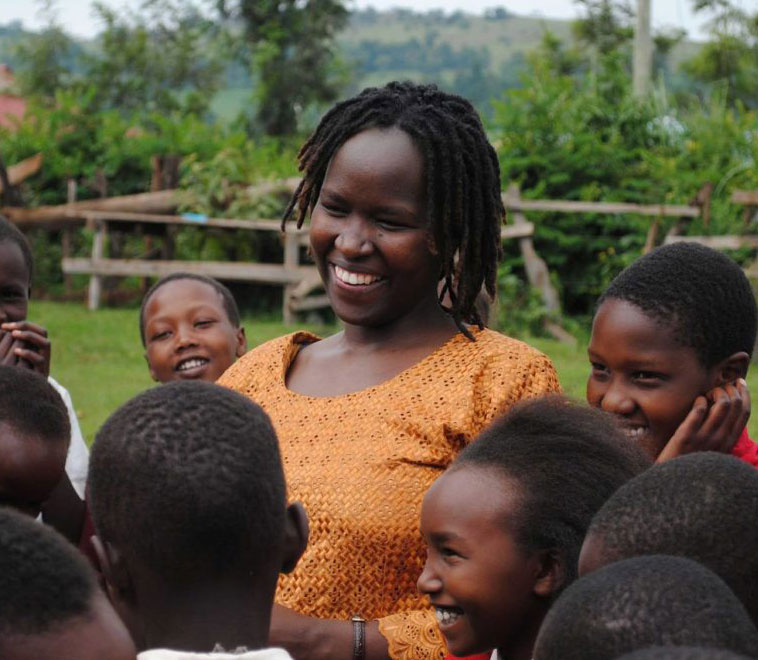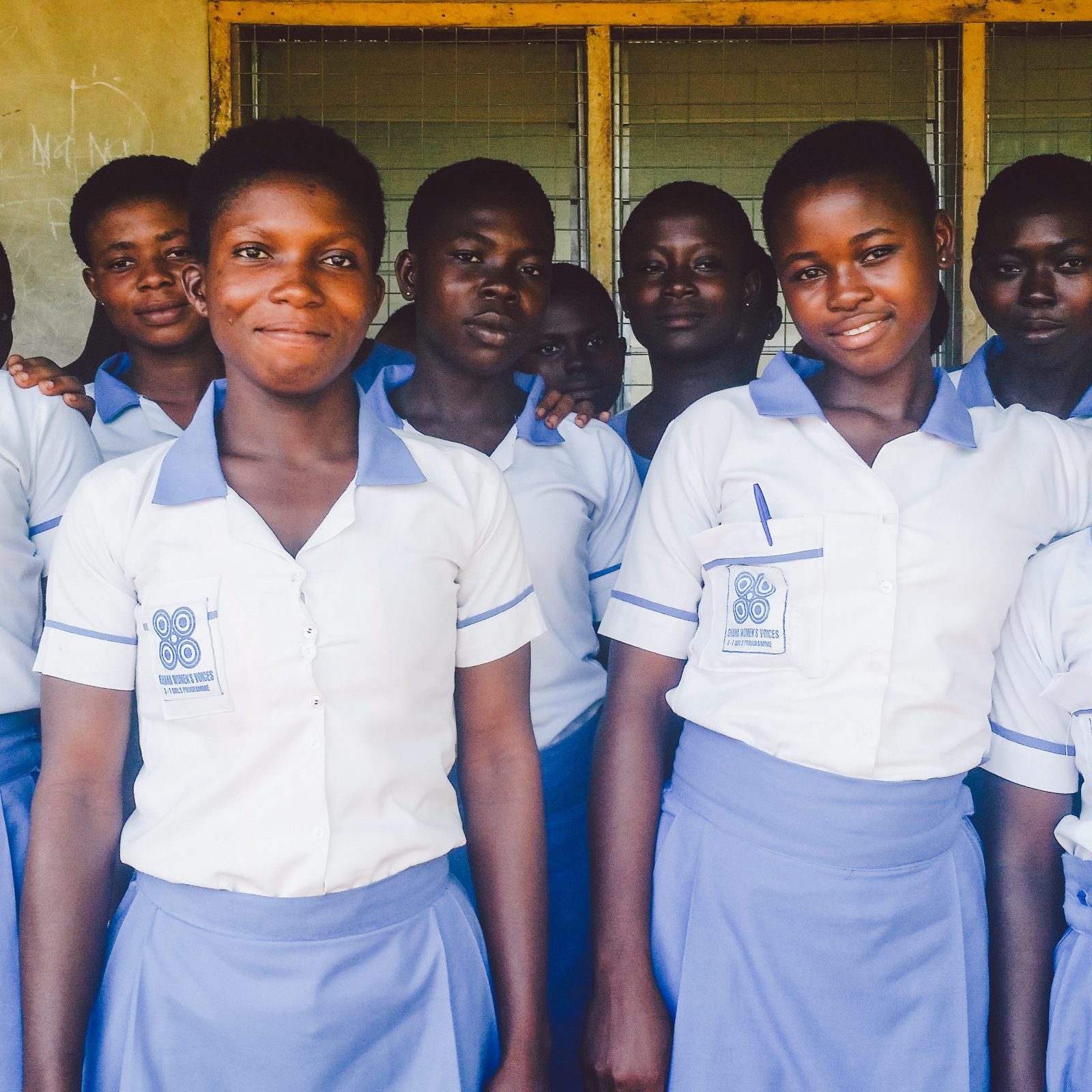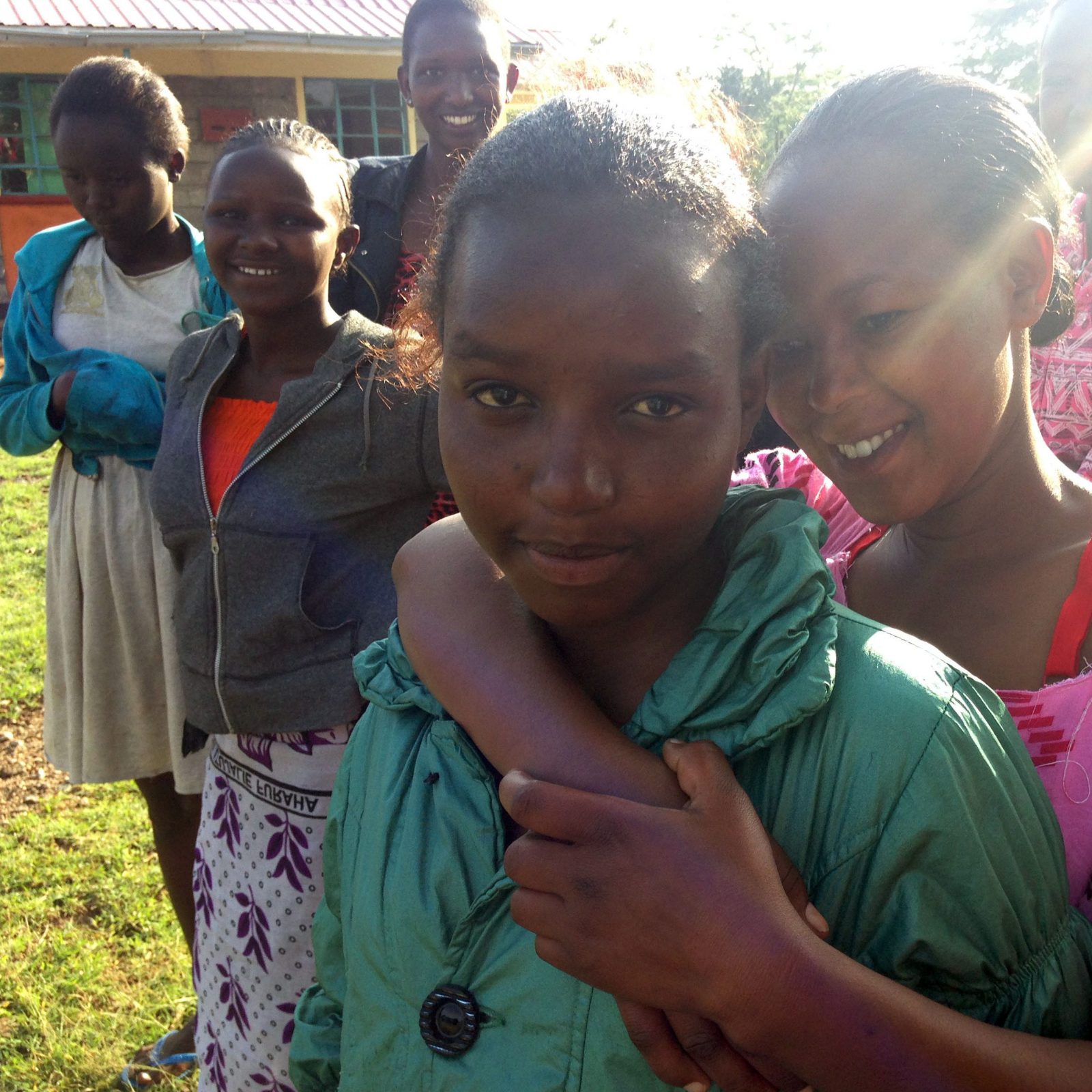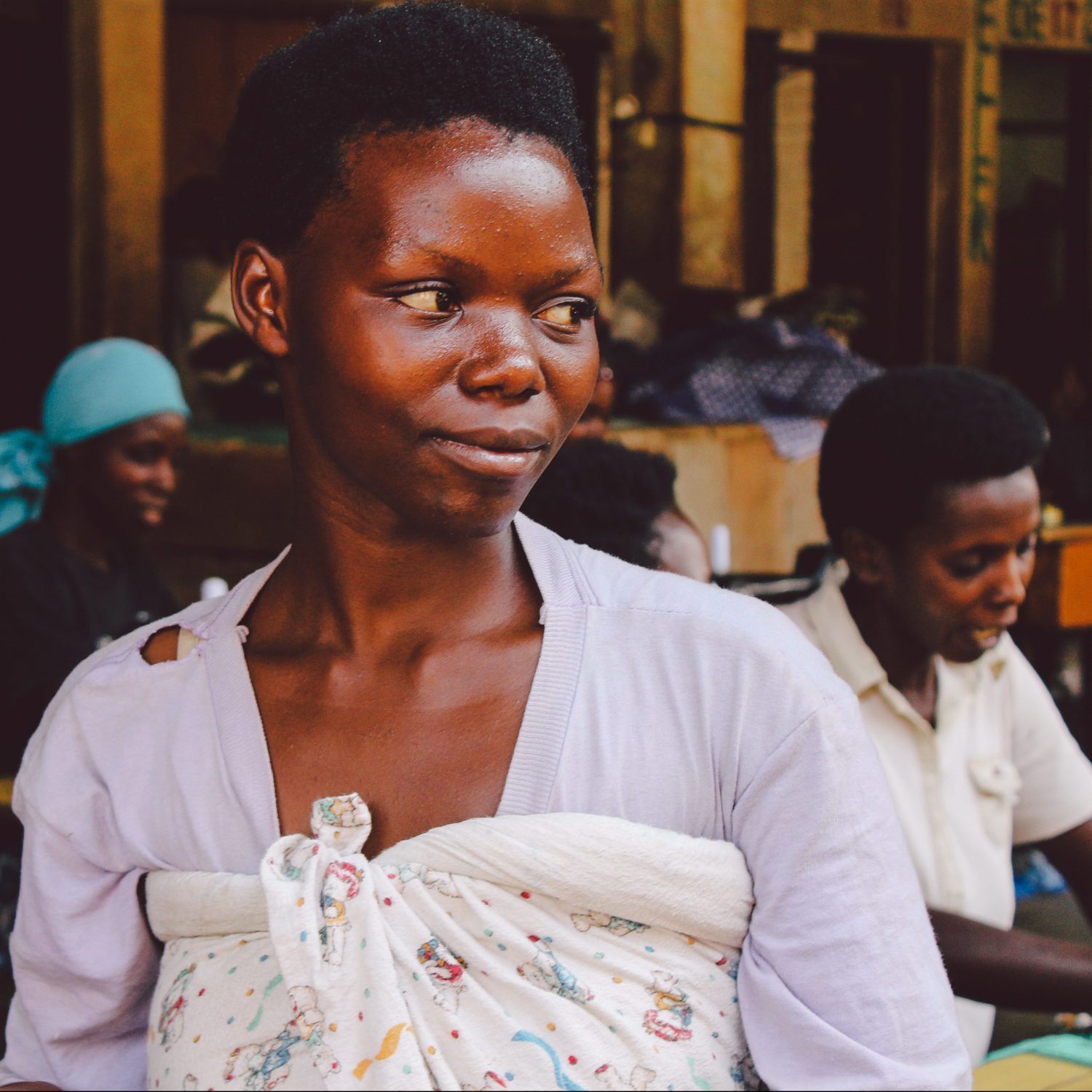Journey to West Africa with Bundie Kabanze, who reflects on the spirit of Ubuntu and the resilience of communities that have experienced great hardship.
While waiting for breakfast to be served in the restaurant of the Murex Plaza Hotel in Monrovia, Liberia, I noticed that the different cuisines offered were displayed on the awnings: Indian, Chinese, Lebanese, Turkish, and African.
I didn’t think much about this until dinnertime, when I was making a decision about what to have. I thought of trying out some traditional Liberian food and asked the waiter what type of local food they had. I was informed that all the food under the “African” section was Liberian. That got me thinking about why all the other cuisines were named by country while the local food was named by continent. This wasn’t the first time I had been confronted with a reference to the entire continent of Africa, the whole 54 sovereign countries, as a single country.
Since I wasn’t in a hurry, and the waiter, Eric, didn’t seem busy, I decided to ask him why the cuisine wasn’t simply called Liberian. He said he didn’t know, but he went ahead and gave me his theory. He asked me if I had ever heard the term “Ubuntu.” Ubuntu is a complex Southern African word with several definitions. At the heart of all the definitions is the connectedness that exists between people which manifests itself through various human acts, whether among family, social, political, or economic situations.
Eric added that “maybe it’s because all Africans are one big extended family, a family that looks out for each other. You should have seen what happened after the Ebola swept this place. People had little for themselves, but that didn’t stop them from sharing with those that had nothing, especially the children that had lost their parents. It was amazing to see. That, my friend, is Ubuntu in action.” With that, he left me to my musings and to enjoy my dinner.
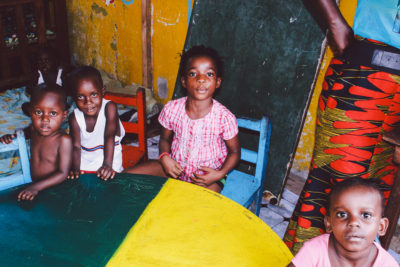
I was in West Africa to visit the grassroots organizations that GFC partners with in Liberia and Sierra Leone. The two countries have, in the recent past, faced similar problems. Liberia experienced two civil wars; the first one lasted about seven years, from 1989 to 1996, and then again from 1999 to 2003. The collective death toll for these wars is pegged at nearly 1 million. Sierra Leone’s civil war dragged on from 1991 until 2002, leaving about a quarter of a million dead and more than 2 million displaced.
Both countries had barely recovered from the wars when Ebola broke out in 2014, disrupting still fragile economic and social structures. These disasters collectively left economies in ruins, basic infrastructure and services is disrepair, and social structures in chaos. And as in all societal disruptions, women and children were the most affected.
As I prepared for this trip, my first to West Africa, I constantly wondered what it takes to rebuild a country after a series of misfortunes like these.
How much courage and willpower does it take to have a positive outlook on the future after being knocked down twice?
How do you put back together the pieces of your life—and your country—and return to normalcy? To me, these seemed like impossible tasks. Where does one even begin?
Fortunately, there are people in Liberia and Sierra Leone who do not share my skepticism about the rebuilding process. These courageous individuals realize that while improving basic social infrastructure such as the health and education systems are urgent priorities, governments face many other challenges left over from sociopolitical turmoil. The onus to pick up the pieces and forge ahead falls on everyone who believes in the collective prosperity of all citizens. In Africa, such individuals are not in short supply, as I quickly learned.
I visited a total of eight grassroots organizations across Liberia and Sierra Leone, three of which are current GFC grassroots partners. I was blown away by the immense resilience they exhibited, the incredible passion the leaders and staff have for their work. These organizations were founded and are led by people who have a different mindset than mine, a conviction that to get where you need to be, you must begin somewhere; that a journey of a thousand miles begins with that one step. These leaders realized that the challenge of bringing about normalcy does not solely lie with the government. They are not people with more money than they know what to do with; they are people with little more than a dream for a better life for the children in their community, and a willingness to do something about it.
Freetown, Sierra Leone
One of the things that fascinated me during my trip was how each organization has structured its programs to suit the environment in which it operates. After navigating the narrow, congested roads of Freetown on an extremely hot and humid Tuesday, I arrived in Moa Wharf, a sprawling slum overrun with shanty structures made from discarded metal, sticks, rubbish, and mud.
This is home to 6,000 people, most of them children, and is also the location of one of the schools run by GFC partner Precious Gems Rescue Mission. Precious Gems gives dignity and hope by providing early childhood education to children living in abject poverty in Freetown’s slums and deprived communities. While there are other organizations that offer early childhood education in Freetown, Precious Gems is unique in its approach.
Early on, the organization realized that some children had to help their disabled parents beg on the streets, and therefore could not take the time to attend traditional school. To cater to the needs of these children, the organization began a mobile school, called Lady Miriam Norwood Mobile School. The children get on a bus that is fully equipped with books, toys, and teachers, and ride around town while learning. The mobile classroom is innovative in that some children have never been on a vehicle before, and the temptation to be on one is too hard to resist. Precious Gems takes advantage of this opportunity to ignite their passion to learn.
After the sense of hopelessness that confronts you as you enter Moa Wharf, it is refreshing to be greeted with wide, toothy smiles and happy chatter from the children on the bus. It is also reassuring to know that the children are not without help, that there are some homegrown organizations that are addressing local problems, using innovative, local solutions. You can find more information about Precious Gems Rescue Mission here. The last thing I remember about Precious Gems is a flurry of tiny hands with open palms giving me high fives as I left one of its non-mobile schools.
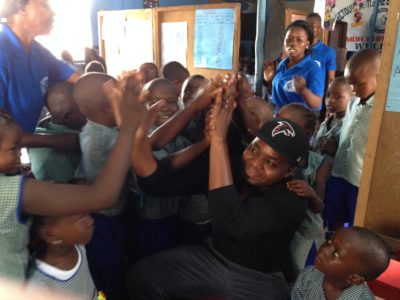
After a hearty, traditional Salone (short for “Sierra Leone”) meal, I headed out to visit Touching Humanity in Need of Kindness (THINK) in Monrovia, Liberia. Monrovia is 225 miles away from Freetown as the crow flies, or about 340 miles by road. At normal highway speed, the trip should take approximately five hours. But there is no highway between the two cities, and no public transportation. In fact, you need a four-wheeler and at least 15 hours to make the trip by road. So after listening to some local wisdom, I opted to take a flight that lasted only 45 minutes.
Monrovia, Liberia
THINK is located in Paynesville, a suburb of Monrovia, and its office is only a couple of hundred feet from where Liberia’s largest Ebola treatment unit stood. The first time I heard of the organization, I took a bit of time to try to understand the reasoning behind the choice of its full name. After visiting the THINK safe houses and transitional centers, I needed no further explanation.
THINK’s safe houses, or homes, provide young girls who are survivors of abuse with protection, shelter, security, and psychosocial counseling, while its transitional centers serve older girls and young women through services such as clinical management of sexual and gender-based violence, counseling, rehabilitation support, foster care placement, and early childhood education for their children.
The girls at the THINK homes had so much life in them, despite the experiences they had endured. They sang and danced away, seemingly without a care in the world, and showed me, with a lot of pride, the doormats they had crafted with their own hands. Basically, they were doing exactly what children should be doing. I asked one girl how she felt about being in the home. With watery eyes, she told me, “Here I have time to play with my friends without fearing that a man will touch me. The walls and mum Rosanna [THINK director Rosanna Shaack] make me feel safe.”
Her response reminded me of one of my favorite stories as a child: “The Three Little Pigs.” Just like the brick house in the story, THINK provides a safe haven where children can be children, a place where they know that they are protected from all external threats. The girls tried to show me some dance moves, but if their giggling was anything to go by, I don’t think I did a very good job.
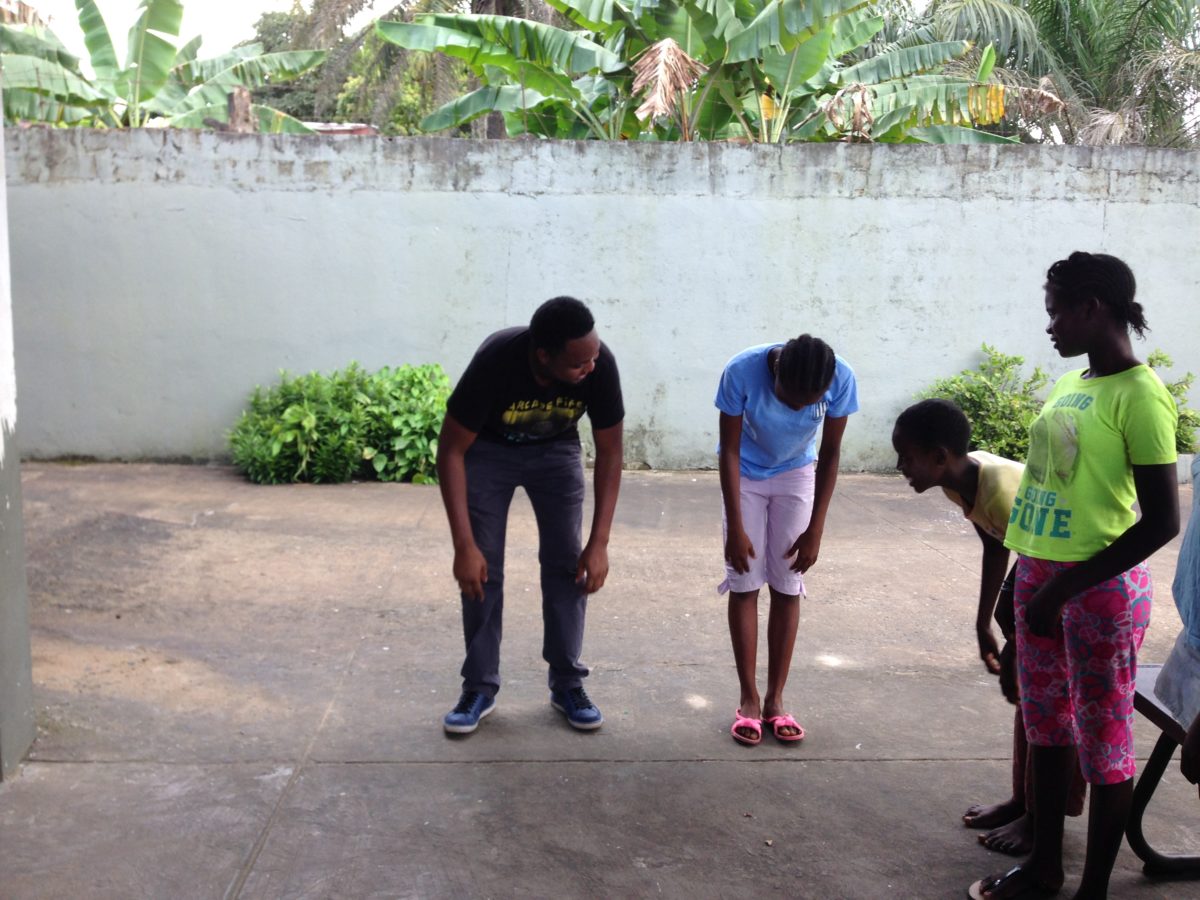
THINK realized that most victims of abuse never utilize all the services available to them because those services are spread around the city. THINK’s solution was to provide a one-stop center that saves abuse survivors and their families from having to make separate trips to the various service providers. The center offers medical examinations and treatment, counseling for abuse survivors and their families, law enforcement assistance, and victim advocacy, all at one facility.
I asked Rosanna, who is also the founder of THINK, why she does what she does. Her response was “If not me, then who? Any of these girls could have been my daughter.” This unselfish determination to take others’ children and protect them and nurture them as her own made me regain some belief in humans. At that moment it heartened me to know that there are some people who will always rise from seemingly impossible situations and give dignity and hope to children in need. You can read more about THINK here.
I visited a couple more organizations before preparing to leave West Africa. The stories about what had prompted the establishment of these organizations all had a common thread—a determination to be a beacon of hope to the children on the edges of society, to be advocates for their rights, and to give them a springboard from which to pursue their dreams. The spirit of Ubuntu that Eric talked about was alive in all of them.
All the organizations also exhibited similar characteristics: they are rooted in the communities they serve; they find new ways of dealing with problems that plague their communities; and they are well known locally and highly spoken of. It is for these very reasons that GFC partners with grassroots organizations to help them grow stronger and impact more children.
As I sat in the same restaurant a few days later, staring out the window while waiting for my ride to the airport, I reflected on what I had learned during my time in Liberia and Sierra Leone. It was enough to make me look at the “African Cuisine” display and not want to argue with whoever wrote it.
